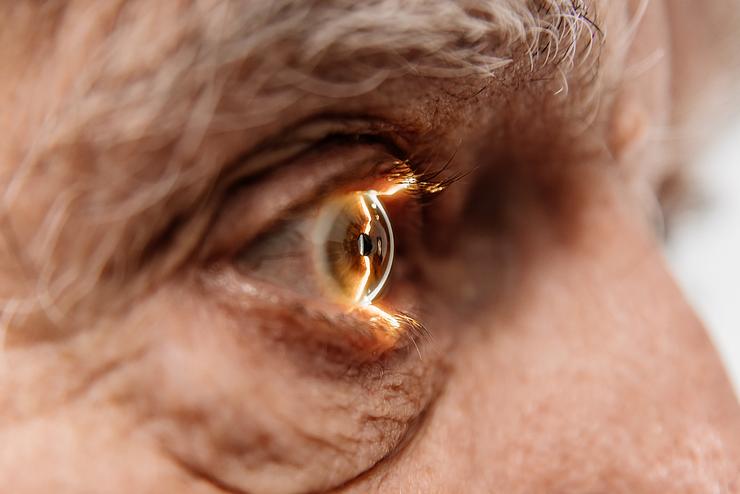Medically reviewed by Dr. Danielle Campbell
From the FYidoctors - Comox Valley
Hypertension: High Blood Pressure's Impact on Eyes

High blood pressure can significantly affect your eyes, leading to conditions like hypertensive retinopathy where the retina's blood vessels are damaged, potentially causing blurred vision, vision loss, or even blindness. Regular eye exams can detect early signs of damage due to high blood pressure, allowing for timely intervention to protect your sight. Managing your blood pressure through lifestyle changes and medication is crucial in preventing serious eye issues and maintaining overall eye health. So, don't skip those eye appointments—they're vital not just for your vision but also for monitoring your broader health.
What is Hypertensive Retinopathy?
Hypertensive retinopathy is a condition where high blood pressure damages the retina, the light-sensitive tissue at the back of your eye. When your blood pressure stays elevated for too long, it can cause the blood vessels in your retina to thicken, narrow, and even leak blood or fluid. This damage can lead to a range of vision problems, including:
- Blurred or double vision
- Dark or empty areas in your vision
- Vision loss
In severe cases, hypertensive retinopathy can even cause complete blindness. That's why it's crucial to keep your blood pressure in check and have regular eye exams to catch any signs of damage early on.
How High Blood Pressure Affects Your Eyes
High blood pressure can wreak havoc on your eyes in a number of ways. When your blood pressure is consistently high, it puts extra strain on the delicate blood vessels in your eyes. Over time, this can lead to a host of vision problems, including:
- Blurred or double vision
- Dim vision or vision loss
- Headaches
These symptoms can be early warning signs that high blood pressure is taking a toll on your eyes. If you experience any of these issues, it's important to schedule an eye exam right away.
What are the Signs of High Blood Pressure in the Eyes?
During a comprehensive eye exam, your optometrist will look for signs of high blood pressure in your eyes. Some of the things they may check for include:
- Narrowing of the blood vessels in your retina
- Bleeding in the back of your eye
- Swelling of your optic nerve
If your eye doctor notices any of these signs, they may recommend that you see your primary care physician to have your blood pressure checked. Catching high blood pressure early is key to preventing serious damage to your eyes and protecting your vision for the long haul.
How Eye Exams Can Help Detect High Blood Pressure
Your eyes are more than just windows to your soul—they're also a window into your overall health. In fact, a comprehensive eye exam can reveal a lot about what's going on in your body, including whether you have high blood pressure.
During an eye exam, your optometrist will use special tools to get a close-up look at the blood vessels in your eyes. These tiny vessels can provide clues about the health of your cardiovascular system. If your eye doctor notices any changes or abnormalities in these vessels, it could be a sign that you have hypertension.
Did You Know? Many people with high blood pressure don't experience any symptoms, which is why it's often called the "silent killer." But an eye exam can catch hypertension early, even before you start to feel unwell.That's why regular eye exams are so important. By seeing your optometrist for a check-up every year or two, you're not just taking care of your vision—you're also taking steps to protect your overall health and well-being. So don't put off that eye exam any longer! Book an appointment with an FYidoctors optometrist today and take charge of your eye health.
What Happens to Blood Vessels in Your Eyes When You Have Hypertension?
When you have high blood pressure, it can take a toll on the delicate blood vessels in your eyes. Over time, hypertension can cause these vessels to become stiff and narrow, making it harder for blood to flow through them properly.
This can lead to a number of complications, such as:
- Arteriovenous nicking: This occurs when the blood vessels in your retina cross and push against each other, causing them to become even more narrow and fragile. Possibly leading to compressive obstruction of a vessel.
- Leakage: As the blood vessels become damaged, they may start to leak blood or fluid into the retina, which can cause vision problems.
- Hemorrhaging: In severe cases, the blood vessels may rupture and bleed into the eye, which can cause permanent vision loss if left untreated.
These changes to your eye's blood vessels can be spotted during a comprehensive eye exam, which is why it's so important to see your optometrist regularly—especially if you have high blood pressure. By catching these issues early, you can take steps to protect your vision and prevent more serious complications down the road.
Why Controlling Blood Pressure is Crucial for Eye Health
Uncontrolled high blood pressure can wreak havoc on your eyes, increasing the risk of serious conditions like optic neuropathy. Optic neuropathy occurs when the blood supply to your optic nerve is disrupted, which can also cause permanent vision problems.
The good news is that managing your blood pressure can go a long way in protecting your eyesight. This can involve:
- Making lifestyle changes, such as eating a healthy diet, exercising regularly, and quitting smoking
- Taking medication as prescribed by your doctor to keep your blood pressure in check
- Attending regular check-ups with your healthcare provider to monitor your blood pressure and make any necessary adjustments to your treatment plan
By taking steps to control your blood pressure, you can help reduce your risk of developing serious eye conditions and preserve your vision and health for years to come. If you have concerns about your blood pressure or eye health, don't hesitate to talk to your doctor or schedule an appointment with an FYidoctors optometrist.
Steps to Prevent Hypertensive Retinopathy
Preventing hypertensive retinopathy starts with adopting a healthy lifestyle. A balanced diet rich in fruits, vegetables, whole grains, and lean proteins can help keep your blood pressure in check. Aim to limit your intake of salt, saturated fats, and processed foods. Regular exercise is also crucial; aim for at least 30 minutes of moderate physical activity most days of the week.
In addition to lifestyle changes, it's essential to monitor your blood pressure regularly. You can do this at home with a blood pressure monitor or by visiting your healthcare provider. If you have been diagnosed with high blood pressure, be sure to follow your doctor's advice and take any prescribed medications as directed.
Remember, early detection and management of high blood pressure are key to preventing hypertensive retinopathy and other serious health problems. If you have concerns about your eye health, don't hesitate to schedule an appointment with an FYidoctors optometrist. They can perform a comprehensive eye exam to check for signs of hypertension and provide personalized recommendations to help you maintain healthy vision.
FAQ
What are the signs of high BP in the eyes?
Does high blood pressure affect eye pressure?
Can lowering blood pressure improve vision?
What does high pressure feel like in the eye?
Can eye damage from high blood pressure be reversed?
How long does it take for high blood pressure to cause damage?

